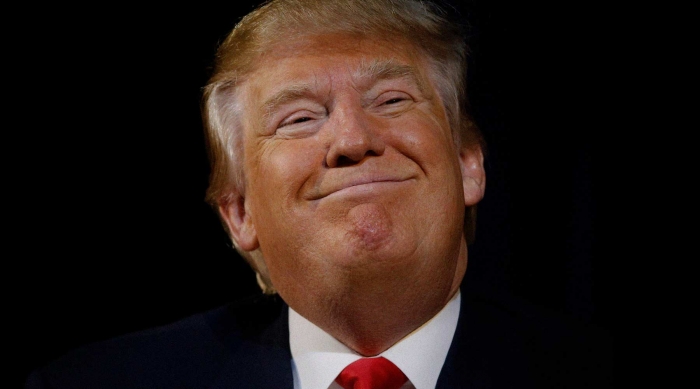You are here
Home 🌿 Marijuana Politics 🌿 11 Ways the Trump Administration May Try to Kill Legal Marijuana 🌿11 Ways the Trump Administration May Try to Kill Legal Marijuana

1. Reaffirm support for the law. Issue a statement affirming the incoming administration’s commitment to the Controlled Substances Act with the goal of reducing, not expanding, the use of marijuana in the nation.
2. Coordinate with lower-level officials. Have the new attorney general prioritize reaching out to governors and key law enforcement officials in states that have legalized marijuana to work with them on enforcement of federal marijuana laws.
3. Reassert America’s drug position on the world stage. The White House should make clear that the United States continues to support the three international drug conventions, and that it intends to change its domestic policy to reflect that support.
4. Up the profile of key drug enforcement personnel. Restore to Cabinet-level status the position of the director of the Office of National Drug Control Policy, and adequately fund the office so that it can be effective.
5. Rescind and replace the August 2013 memorandum from then-Deputy Attorney General James M. Cole — i.e. the “Cole Memo.” The Department of Justice could do this by reiterating that marijuana cultivation, distribution, and sale are against federal law and that while states may decriminalize possession of marijuana, they may not issue licenses to sell it or commercialize it. Reiterate that the federal government is not locking up people for smoking marijuana, and that state employees are not going to be arrested, but that the Department of Justice fully expects states to not permit commercialized marijuana production and sale.
6. Select marijuana businesses to prosecute. Find a handful of cases in which large, well-funded marijuana businesses are in violation of both state and federal marijuana laws and prosecute both their management/operators and financiers. A real threat of prosecution will raise the cost of capital in the industry significantly, and seriously impede any operations above the cottage-level. Moreover, selection of unsympathetic defendants in violation of both state and federal law will (1) minimize political pushback, (2) avoid conflict with congressional appropriations provisions, and (3) clearly demonstrate the failure of the Cole Memo.
7. Rescind the Financial Crimes Enforcement Network’s guidance for banks and oppose efforts to expand banking services to the marijuana industry. One of the principal brakes on the expansion of the marijuana industry is its lack of access to banking. Once pot businesses have regular, unimpeded access to institutional capital, their ability to scale up will expand significantly—and the financial sector will begin to lobby in favor of expanded sales of the drug.
8. Support state attorneys general in nonlegalized states. Nonlegalized states have suffered significantly from illegal diversion of marijuana from legalized states, and from the apparent uptick in sophisticated cartel activity there. Support could include entering as an amicus to support the merits of the suit Nebraska and Oklahoma filed against Colorado.
9. Prosecute those dealing in marijuana — which is illegal under federal law — using the Racketeer Influenced and Corrupt Organizations Act (RICO). Those who engage in a pattern of racketeering activity through a corporation or other enterprise are liable for three times the economic harm they cause. RICO gives federal courts the power to order racketeering enterprises and their co-conspirators to cease their unlawful operations.
10. Prosecute those who provide financing for marijuana operations. Federal anti-money laundering statutes make it illegal to engage in financial transactions designed to promote illegal activities, including drug trafficking. Start with one major marijuana financier and successfully prosecute it.
11. Empower the FDA to take action to regulate marijuana in order to protect patients and the public. Marijuana legalization poses a public health problem, and the FDA should be tasked with investigating marijuana for chemical contamination and pesticides. Marijuana should also be subject to the standards of the rigorous criteria of the FDA approval process, which has been carefully constructed to protect consumer and patient health and safety.
420 Intel is Your Source for Marijuana News
420 Intel Canada is your leading news source for the Canadian cannabis industry. Get the latest updates on Canadian cannabis stocks and developments on how Canada continues to be a major player in the worldwide recreational and medical cannabis industry.
420 Intel Canada is the Canadian Industry news outlet that will keep you updated on how these Canadian developments in recreational and medical marijuana will impact the country and the world. Our commitment is to bring you the most important cannabis news stories from across Canada every day of the week.
Marijuana industry news is a constant endeavor with new developments each day. For marijuana news across the True North, 420 Intel Canada promises to bring you quality, Canadian, cannabis industry news.
You can get 420 Intel news delivered directly to your inbox by signing up for our daily marijuana news, ensuring you’re always kept up to date on the ever-changing cannabis industry. To stay even better informed about marijuana legalization news follow us on Twitter, Facebook and LinkedIn.




